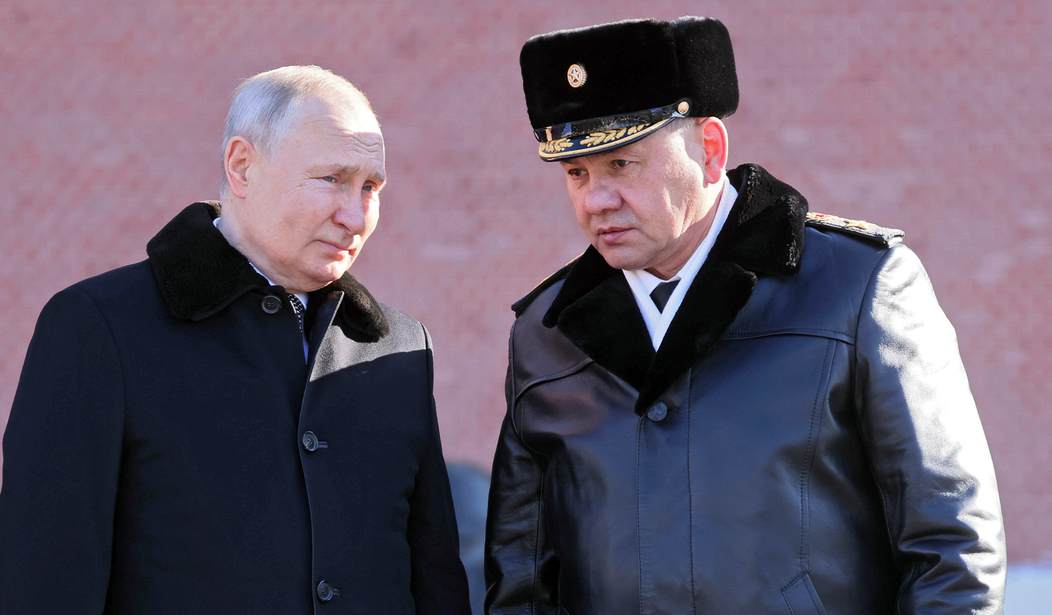Biden administration intelligence officials claim that as early as mid-June, they knew that Yevgeny Prigozhin, the leader of the private Wagner Group militia, had become so dissatisfied with the Russian military establishment that he planned and carried out an armed uprising.
The intelligence didn’t indicate when the uprising would take place, only that it was going to happen and that “there were enough signals to be able to tell the leadership … that something was up,” said one U.S. official, who spoke on the condition of anonymity. “So I think they were ready for it.”
Some reports contradicted that assurance. “U.S. Officials Caught Off Guard By Mutiny,” was the headline in the UK Telegraph. It hardly matters. The intel was almost useless without even an approximate date for the action to take place.
Be that as it may, the “mutiny” or “insurrection” is now officially over. What happens going forward in Russia, Ukraine, and elsewhere in Eastern Europe are the unanswered questions facing Russian President Vladimir Putin, Prigozhin, and other players who had a part to play in this drama.
Turkey’s President Recep Tayyip Erdogan called Putin on Saturday after the Russian leader’s speech referring to the actions of Wagner Group as “treason.” He offered support for Putin and offered to help resolve the crisis. Belarus’s President Alexander Lukashenko actually negotiated the deal that put Wagner Group tanks back in their barracks. Prigozhin is apparently being allowed to go to Belarus as part of that deal, although it’s difficult to see how Putin can spare his life after the stunt he pulled.
Prigozhin lost 20,000 men in front of Bakhmut — a butcher’s bill he clearly blames on the Russian high command. He has bitterly accused them of denying his fighters the ammunition and support that he felt they deserved. He also has a serious quarrel with the Minister of Defense Sergei Shoigu, who embarrassed Prigozhin earlier this month when he demanded all private militias sign a contract with the Defense Ministry. Prigozhin’s grievances piled up until the dam broke and the tanks began to roll toward Moscow.
Prigozhin’s argument is with the Russian military and not with Putin. But the behavior of Russian troops toward him when he and his soldiers entered Rostov-on-Don and occupied the southern district military headquarters might have given Putin a good scare.
Prigozhin faced littleresistance when he and his forces marched into Rostov-on-Don and took control of the Southern Military District headquarters there, Western and U.S. intelligence officials noted, calling that an indication he enjoys some level of support among regular military forces as well as Russia’s security services.
“If Prigozhin intended to drive a wedge between the command of Russian Federation Armed Forces and the Kremlin he failed,” said the senior Western official, meaning that the 24-hour rebellion does not appear, for now, to have triggered a broader rupture between Putin’s inner circle and the military leaders Prigozhin detests.
Some analysts express surprise that Putin’s relatively slow response to Prigozhin’s challenge. It could reflect a lack of high-level coordination in the Russian government and likely internal rivalries, U.S. officials surmise. Does that indicate a lack of control on the part of Putin?
A political scientist, Mark Galeotti, wrote in an essay for The Sunday Times that the endgame for Putin has started. “Putin may be talking tough now, but it was his failure to act in a timely way to control Prigozhin (or remove Shoigu and Gerasimov) that has led to this crisis,” Galeotti wrote. “Putin seems likely to defuse or defeat this specific challenge, but will still take what may in the long term prove to be a mortal wound.”
At the very least, one has to wonder about the morale of Russian conscripts, which is awful under the best of circumstances. The possibility of wholesale desertions cannot be discounted.
Conversely, the morale of Ukraine’s army must have skyrocketed. But they are mistaken if they see what happened in Russia as a sign the war is almost over. Even if Putin is on his last legs, whoever succeeds him will continue to prosecute the war as vigorously as Putin.
That’s the nature of “forever wars.” It doesn’t matter who’s in charge, only that the war goes on and on.










Join the conversation as a VIP Member